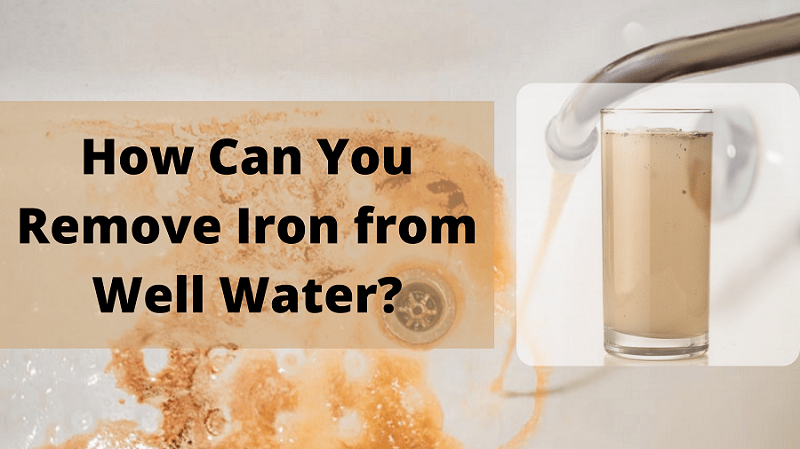
Does the water in your tap smell and taste funny? Does it have orange flakes floating in it? If yes, you are dealing with iron contamination in your well water. Iron is a common contaminant that most well-owners have to deal with. Iron is not harmful to humans but it can affect the quality of water. So why should you get an iron filter when iron is not harmful to your health? Here’s why:
What Damage Can Iron in Water Cause to Me?
Iron can stain your appliances, make your drinking water taste funny, and reduce household water pressure. An iron water filter can save you the trouble of scrubbing your appliances and fixtures to remove iron build-up.
Discolored Appliances and Fixtures: If the water pumped out of your well has iron, then you will notice yellow or orange stains in your sink, toilets, bathtubs, and even in appliances that are exposed to this contaminated water. An iron removal filter can remove iron and prevent discoloration.
Water Looks Unappetising: Iron can make the water look and taste unappetizing. The presence of iron in the water gives it a strong smell too. Not only is this water unsuitable for drinking purposes, but it also cannot be used for cooking. Iron imparts a strong, metallic taste to the water, which stands out even in food cooked using water contaminated with iron. An iron removal system can enhance the quality of your water by several times.
Clogged Pipes: Iron slowly gets accumulated over time and can cause clogging of your pipes and other plumbing fixtures. The clogging will reduce the overall water pressure in your home and reduce the performance of your household expenses. Another disgusting outcome of iron contamination is that it could cause an infestation of bacteria. Bacterial iron leaves behind a thick brown slime that could build up in your pipes and become a breeding ground for pathogenic bacteria.
How Does Iron Get Into Well Water?
Iron is the most abundant mineral in the earth’s crust. When there is heavy rainfall, the iron dissolves in water and seeps into underground aquifers. This can also happen post-snowfall when the water seeps into the ground as the snow thaws.
It can also enter your well-water system from exposure to rusty, corroded plumbing.
How Can I Remove Iron From My Well Water?
Iron exists in three forms – ferric, ferrous, and bacterial. To deal with iron contamination, you need an iron filter. Each form of iron has specified water solutions. Hence, you must first understand which type of iron is present in your well water and then pick out the best water treatment product.
Ferric Iron: Ferric iron is insoluble and gives your water a bright orange or yellow color. To deal with this form of iron, you will need a sediment filter. A sediment iron filter allows the water to flow through its system and blocks solid particulate matter. While buying a sediment iron water filter, make sure that it has enough micron rating so that it can adequately capture the iron.
Water that has bacterial iron can also be treated using a sediment iron filter.
Ferrous Iron: This is a soluble form of iron, which means that it will not appear to the naked eye. However, if you leave a glass of water that is rich in ferrous iron undisturbed for some time, you will see small iron flakes settled at the bottom of the glass. The dissolved iron precipitates when exposed to the environment.
To remove ferrous iron, you need an efficient water filtration system. Ion exchange water softeners can handle ferrous iron traces efficiently. These iron removal filters work by the ion exchange process. If you already have a water filtration system, make sure that you clean the system and beads regularly.
Want expert advice? Reach out to the experts at Peninsula Water to learn about the kind of water filter you need!
Testing for Common Contaminants
Coliform Bacteria
Coliform bacteria is a common bacteria found in the digestive system of animals and humans. Testing for this bacteria is recommended annually, as its presence in your water could indicate the presence of other harmful pathogens. If it is detected, it’s important to disinfect your well and retest the water to ensure it’s safe to drink.
Lead
Lead can enter your well water through old pipes or solder and is a potent neurotoxin. Exposure to lead can cause developmental issues, learning disabilities, and behavioral problems. Testing your well water for lead at least once is recommended. Certain high-quality iron filters for well water come with the capacity to reduce lead from water.
Nitrate
High nitrate levels in well water can harm infants, causing a potentially fatal condition called methemoglobinemia. Testing for nitrate levels every other year is recommended, especially if you have a baby in the house.
Arsenic
Arsenic is a toxic chemical that can cause skin lesions, cancer, and damage to the circulatory and nervous systems. If your well is located in an area with a mining or heavy industry history, it’s recommended to test for arsenic at least once.
Manganese
Manganese is not necessarily harmful to human health, but it can cause staining of clothes and fixtures and leave a metallic taste in your water. Testing your well water for manganese before a baby drinks the water is recommended. Consider a specific iron filter for well water that has the capacity to remove this contaminant.
Volatile Organic Chemicals (VOCs)
VOCs are often found in industrial and commercial areas and can cause several health issues, including cancer, reproductive problems, and neurological damage. Testing for VOCs is especially important if you live near a manufacturing plant or other industrial area.
Agricultural Chemicals
If you live in a farming area, your well water may be at risk of contamination from pesticides and herbicides. These chemicals can seep into the ground and contaminate your well water, causing health problems such as cancer and reproductive issues. Testing for agricultural chemicals is recommended if you live where these contaminants are prevalent.
Fluoride
Fluoride is a common additive in municipal water systems, but if you have a private well, you may not know if your water contains fluoride. While fluoride is not necessarily harmful to human health, excessive fluoride exposure can cause fluorosis, a condition that affects teeth and bones.
Other Water Contaminants to Consider Testing For
pH Levels
The pH level of your well water can affect the taste, odor, and safety of your water. Low pH levels can indicate the presence of acidic compounds that can corrode pipes and cause staining, while high pH levels can indicate the presence of mineral compounds that can cause scaling and other plumbing issues. Testing your water for pH levels is recommended, especially if you notice any changes in your water’s taste, odor, or appearance. It helps to invest in a good quality iron filter for well water that can raise pH levels.
Total Dissolved Solids (TDS)
TDS is the dissolved particles in your well water, including minerals, salts, and other compounds. High levels of TDS can affect the taste and safety of your water and contribute to plumbing issues such as scaling and corrosion. Testing your well water for TDS levels is recommended, especially if you notice any changes in your water’s taste, odor, or appearance.
Radon
Radon is a naturally occurring gas that can enter your home through cracks in the foundation or other openings. Exposure to high levels of radon can increase your risk of lung cancer. Testing your well water for radon is recommended, especially if you live in an area with high levels of radon in the soil.
Chlorine and Chloramines
Chlorine and chloramines are common disinfectants used in municipal water systems to kill harmful bacteria and pathogens. However, you may not know if your water contains these chemicals if you have a private well. High levels of chlorine and chloramines can affect the taste and safety of your water and cause corrosion in your plumbing system. Testing your well water for these contaminants is recommended, especially if you notice any changes in your water’s taste, odor, or appearance.
The Importance of Regular Water Testing
Regular testing of your well water is crucial to ensuring the safety and quality of your water supply. Even if your water appears and tastes normal, it may contain harmful contaminants that can put your health at risk. Testing water regularly can help identify potential issues and allow you to take action to protect your family’s health. Consider opting for a whole house water filter system to remove iron from well water along with other contaminants mentioned above. It also significantly helps to consult a water treatment service such as Peninsular Water to get expert recommendations best suited to your problem.
Reach Out to Us to Pick the Right Water Filter for Your Home
Peninsula Water provides a host of products for water filtration, including iron filters in Maryland. You can connect with our experts by calling us at (410) 341-6500 or writing to us at service@peninsulawater.com to learn more about water treatment in Maryland and Fruitland. We would be happy to help!


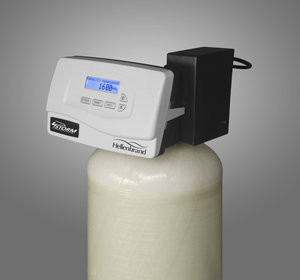
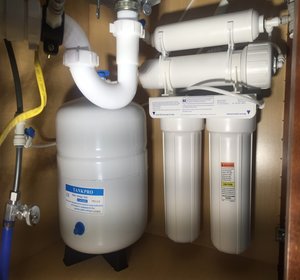
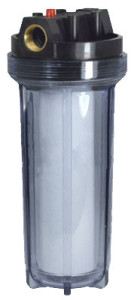
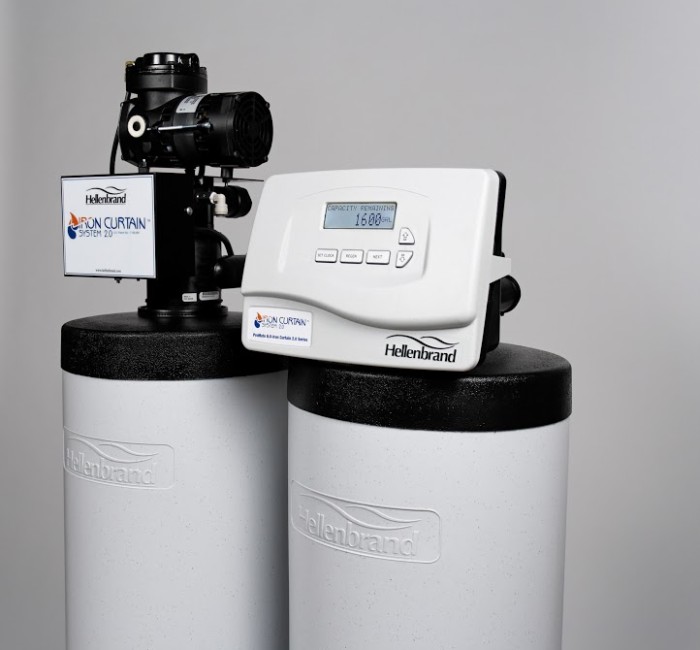
No Comments